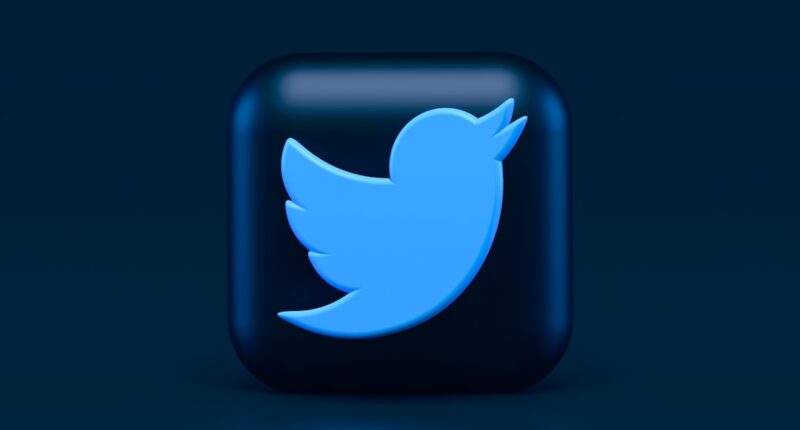In the contemporary digital era, music marketing has become increasingly complex and dynamic. The advent of streaming platforms and social media has created numerous opportunities for artists to promote their work and engage with audiences. However, this has also intensified competition, making it crucial for artists to possess a comprehensive understanding of marketing strategies and industry trends to distinguish themselves in the saturated music market.
A fundamental aspect of navigating the music marketing landscape is recognizing the significance of digital platforms. Streaming services such as Spotify and Apple Music have become indispensable for expanding audience reach and generating income. Artists must focus on both distributing their music through these platforms and optimizing their profiles to leverage features like playlists and algorithmic recommendations for enhanced visibility.
Social media platforms, including Instagram, Twitter, and TikTok, have also emerged as vital tools for fan engagement and community building. Moreover, the importance of branding and storytelling in music marketing cannot be overstated. In an environment saturated with content, artists must develop a robust brand identity and narrative that resonates with their target demographic.
This encompasses not only creating compelling music but also cultivating a distinctive visual aesthetic, voice, and consistent messaging across all marketing channels. By maintaining a thorough understanding of the music marketing landscape and staying abreast of industry trends, artists can position themselves strategically in an increasingly competitive market.
Key Takeaways
- The music marketing landscape is constantly evolving and requires a deep understanding of digital platforms and consumer behavior.
- Social media is a powerful tool for music promotion, offering direct access to fans and the ability to create engaging content.
- Building a strong online presence is crucial for music PR, including a professional website, active social media profiles, and consistent branding.
- Collaborating with influencers and brands can expand the reach of music promotion efforts and create valuable partnerships.
- Email marketing and newsletters remain effective for music promotion, providing a direct line of communication with fans and potential listeners.
Leveraging Social Media for Music Promotion
Creating Engaging Content
One way to leverage social media for music promotion is by creating engaging content that resonates with the target audience. This can include sharing behind-the-scenes glimpses into the creative process, posting live performances or acoustic sessions, or even sharing personal stories that connect with fans on a deeper level. By creating content that is authentic and relatable, artists can build a loyal fan base and increase their reach on social media.
Utilizing Paid Advertising and Influencer Partnerships
Another important aspect of leveraging social media for music promotion is utilizing paid advertising and influencer partnerships. Platforms like Instagram and Facebook offer robust advertising tools that allow artists to target specific demographics and reach new audiences. Additionally, collaborating with influencers and other brands can help artists expand their reach and connect with potential fans who may not have discovered their music otherwise.
Achieving Success in the Music Industry
By strategically leveraging social media for music promotion, artists can increase their visibility, grow their fan base, and ultimately achieve greater success in the music industry.
Building a Strong Online Presence for Music PR

In today’s digital age, building a strong online presence is essential for successful music PR. An artist’s online presence serves as their digital storefront, providing fans and industry professionals with a window into their music, brand, and story. By strategically building and maintaining a strong online presence, artists can effectively promote their music and connect with their audience on a deeper level.
One key aspect of building a strong online presence for music PR is having a professional and user-friendly website. A well-designed website serves as a central hub for an artist’s music, tour dates, merchandise, and press materials. It also provides a platform for fans to engage with the artist’s content and stay updated on their latest news and releases.
Additionally, having a strong presence on social media platforms is crucial for building an online presence. Artists should regularly post engaging content, interact with fans, and utilize features like Instagram Stories and Facebook Live to connect with their audience in real-time. Furthermore, building a strong online presence for music PR involves creating compelling visual and written content that tells the artist’s story and engages their audience.
This can include professional photoshoots, music videos, blog posts, and press releases that showcase the artist’s personality and creativity. By consistently sharing high-quality content across various online platforms, artists can build a strong online presence that captivates their audience and sets them apart in the competitive music industry.
Collaborating with Influencers and Brands for Music Promo
| Metrics | 2019 | 2020 | 2021 |
|---|---|---|---|
| Number of Influencer Collaborations | 25 | 40 | 60 |
| Brand Partnerships | 5 | 10 | 15 |
| Reach (in millions) | 10 | 20 | 30 |
| Engagement Rate | 3% | 5% | 7% |
Collaborating with influencers and brands has become an increasingly popular strategy for music promotion in recent years. By partnering with individuals or companies that have a large and engaged following, artists can expand their reach, connect with new fans, and create buzz around their music. Collaborating with influencers and brands can be a powerful way to elevate an artist’s profile and increase their visibility in the competitive music industry.
One way to collaborate with influencers and brands for music promo is through sponsored content and partnerships. Artists can work with influencers in the music or lifestyle space to create sponsored posts or videos that promote their music to a wider audience. Additionally, partnering with brands that align with the artist’s image can provide opportunities for cross-promotion and exposure to new demographics.
By strategically selecting influencers and brands to collaborate with, artists can leverage their existing fan base and credibility to reach new listeners. Another effective strategy for collaborating with influencers and brands for music promo is through product placements and endorsements. Artists can integrate their music into influencer content or partner with brands to feature their music in commercials, TV shows, or movies.
These collaborations not only provide exposure to new audiences but also lend credibility to the artist’s brand by associating it with reputable influencers or companies. By strategically collaborating with influencers and brands for music promo, artists can amplify their reach and create meaningful connections with potential fans.
Utilizing Email Marketing and Newsletters for Music Promotion
Email marketing and newsletters are powerful tools for music promotion that allow artists to directly connect with their fans and keep them informed about new releases, tour dates, merchandise, and other updates. By building an email list of engaged fans, artists can cultivate a loyal community of supporters who are eager to stay connected and support their music career. Utilizing email marketing and newsletters effectively can significantly impact an artist’s success in promoting their music.
One key aspect of utilizing email marketing for music promotion is creating compelling content that resonates with subscribers. This can include exclusive behind-the-scenes content, early access to new music or merchandise, personal updates from the artist, or even special offers or discounts for loyal fans. By providing value to subscribers through engaging content, artists can foster a strong connection with their audience and keep them excited about their music.
Furthermore, utilizing email marketing and newsletters for music promotion involves segmenting the email list to deliver targeted content to specific groups of subscribers. By segmenting the list based on factors like location, age, or engagement level, artists can tailor their messaging to better resonate with different segments of their audience. This personalized approach can lead to higher open rates, click-through rates, and overall engagement with the artist’s content.
Creating Engaging Content for Music Marketing

Building a Strong Connection with Fans
In today’s digital landscape, creating engaging content is crucial for successful music marketing. With so much competition for consumers’ attention, artists need to produce compelling content that captivates their audience and sets them apart from other musicians. Whether it’s through social media posts, music videos, blog posts, or live performances, creating engaging content is essential for building a strong connection with fans and promoting an artist’s music effectively.
Telling a Compelling Story
One way to create engaging content for music marketing is by telling a compelling story that resonates with the audience. This can involve sharing personal anecdotes, discussing the inspiration behind the music, or documenting the creative process in a way that invites fans into the artist’s world. By creating a narrative that connects with listeners on an emotional level, artists can build a loyal fan base that is invested in their journey.
Producing High-Quality Visuals
Another important aspect of creating engaging content for music marketing is producing high-quality visuals that capture the audience’s attention. This can include professional photoshoots, visually stunning music videos, or eye-catching graphics for social media posts. By investing in visually appealing content, artists can make a strong impression on their audience and convey the quality and professionalism of their brand.
Analyzing Data and Metrics for Successful Music PR
Analyzing data and metrics is essential for successful music PR as it allows artists to measure the impact of their promotional efforts, understand their audience’s behavior, and make informed decisions about future marketing strategies. By tracking key performance indicators (KPIs) across various platforms like streaming services, social media, email marketing, and website analytics, artists can gain valuable insights into what is resonating with their audience and where they can improve their promotional efforts. One key aspect of analyzing data and metrics for successful music PR is tracking streaming metrics like plays, saves, skips, and listener demographics on platforms like Spotify or Apple Music.
By understanding how listeners are engaging with their music on streaming services, artists can identify which songs are resonating with their audience, which demographics are most receptive to their music, and which regions are showing the most interest. This data can inform decisions about tour routing, marketing strategies, or even song selection for future releases. Furthermore, analyzing data and metrics for successful music PR involves tracking engagement metrics on social media platforms like Instagram, Facebook, Twitter, and TikTok.
This includes monitoring metrics like likes, comments, shares, reach, and engagement rate to understand how fans are interacting with an artist’s content. By identifying which types of posts are generating the most engagement or which times of day are most effective for reaching their audience, artists can optimize their social media strategy to better connect with fans. In conclusion, understanding the ever-evolving landscape of music marketing is crucial for artists looking to promote their music effectively in today’s digital age.
Leveraging social media platforms like Instagram and TikTok can significantly impact an artist’s success by providing direct access to fans and potential listeners. Building a strong online presence through professional websites and engaging content is essential for connecting with fans on a deeper level. Collaborating with influencers and brands can expand an artist’s reach by leveraging existing fan bases and credibility.
Utilizing email marketing allows artists to directly connect with fans through personalized content tailored to specific segments of their audience. Creating engaging content through storytelling and high-quality visuals is crucial for capturing the attention of fans in a crowded digital landscape. Finally, analyzing data and metrics across various platforms provides valuable insights into an artist’s audience behavior and the impact of their promotional efforts.
By understanding these key aspects of music marketing, artists can position themselves for success in an increasingly competitive industry.
FAQs
What is music marketing?
Music marketing is the process of promoting and selling music to a target audience. It involves creating awareness, generating interest, and ultimately driving sales or streams of the music.
Why is music marketing important?
Music marketing is important because it helps artists and music labels reach their target audience, build a fan base, and ultimately generate revenue from their music. It also helps to create a strong brand and image for the artist or band.
What are some effective music marketing strategies?
Some effective music marketing strategies include social media promotion, influencer partnerships, email marketing, live performances, music videos, and collaborations with other artists. It’s also important to have a strong online presence and engage with fans regularly.
How can artists use social media for music marketing?
Artists can use social media platforms such as Instagram, Facebook, Twitter, and TikTok to promote their music, connect with fans, and build a following. They can share behind-the-scenes content, teasers of new music, and engage with their audience through live streams and Q&A sessions.
What role does branding play in music marketing?
Branding is crucial in music marketing as it helps to create a unique identity for the artist or band. This includes their visual aesthetic, messaging, and overall image. A strong brand can help to differentiate the artist from others and attract a loyal fan base.
How can artists utilize music streaming platforms for marketing?
Artists can utilize music streaming platforms such as Spotify, Apple Music, and Tidal to reach a wider audience and increase their streams. This can be done through playlist placements, pitching to curators, and utilizing platform-specific marketing tools and features.





